Origins of Xiangqi (Chinese Chess) 12c General Han Xin
Author: Jim Png of www.xqinenglish.com
Note: This article first appeared on Xiangqi.com.
In the third and last instalment of the article, the writings of David Li are discussed. There will also be a short section introducing the Han Xin Cup.
An overview of the entire article is given below:
- Who was Han Xin?
- Hypothesis 11a: Han Xin invented Xiangqi as a means to end boredom during battle
- Hypothesis 11b: Han Xin taught his prison guard to preserve his military knowledge and wisdom
- Han Xin, the Military Strategist
- Eyles Irwin mentioned the Han Xin hypothesis
- David Li supports the Han Xin hypothesis
- Putting the Han Xin Hypothesis in perspective
- The Han Xin Cup
- Afterthoughts:
As the article is too long, it has been divided into three portions which will be uploaded weekly. This is the third and last portion on Han Xin.
David Li supports the Han Xin hypothesis
Professor David Li (李祥甫lǐ xiáng fǔ, 1928-present), an accountant professor, published The Genealogy of Chess with Premiere Publishing in 1998. His book won the ‘Book of the Year’ award from the editors of GAMES Magazine. David Li is also a Ford Foundation Visiting Professor at the Chinese University of Hong Kong.
He has also translated several Chinese classics into English, including the Analects of Confucius and the Art of War after his retirement. The Genealogy of Chess, which was also called 《象棋家谱》 (xiàng qí jiā pǔ) on the book cover, was later translated into Chinese by the Honorary Chairman for Life of the Asian Xiangqi Federation, Mr. Leung. More particulars about the book can be found in the reference section. (20)
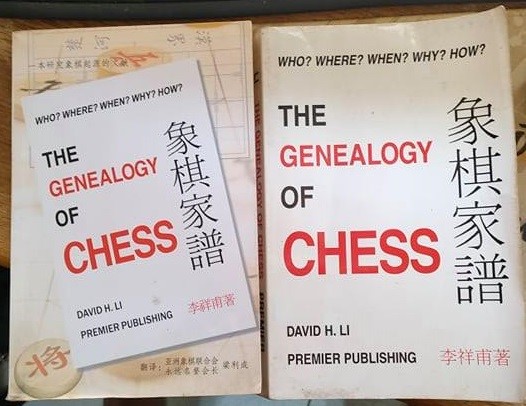
Diagram 8 Translated Copy (left) and Original Book
The book is divided into three parts.
In the first part, the professor examined the origins of chess in Western literature. There were many in-depth discussions of the early journals in the West.
In the second part of the book, David Li pushed forward the hypothesis that Han Xin invented Xiangqi. He introduced Han Xin and presented an argument of how the game of Xiangqi was invented by Han, who was inspired by Liubo. He had a full explanation of how the playing pieces came about, the array, and the game's rules.
The third part of the book was titled “Chess after invention- in China and Beyond.” It examined the possible routes of dissemination to Japan, Korea, India, and the West.
In a nutshell, Professor David Li was a firm believer that Han Xin invented Xiangqi. In his review of the early literature, the professor was critical and pointed out many mistakes or inadequacies of early Western works regarding the origins of Xiangqi.
His work challenges the well-established Western notion that chess (Chaturanga) was invented in India and that Xiangqi was an offshoot of Chaturanga. Li was unabashed at criticizing the established names in the history of chess-like HJR Murray, Sir William Jones, et cetera.
However, the way he presented his arguments was blunt, acidic, and even provocative at times. Naturally, his work has been under great scrutiny, and there has been much criticism.
As he put it in the preface, in the form of a monologue:
“What’s your mission? you ask. To set the record straight. To wrestle the honor of inventing chess from ones who are underserved --- whose only claim to fame is that they have clever handlers touting their names frequently and loudly --- and bestow it upon its rightful claimant, whose recognition is denied for centuries.” (21 p. 5)
David Li praises Pan Zhenguan
David Li did not mince his words when he praised Pan Zhenguan for researching the origins of Xiangqi. In his book, he wrote:
Assessment of Pan’s Work
Pan, a military man drafted to play an uncustomed role of researcher, clear tries to do his best --- witness the format calligraphy, which shows that every stroke is rendered with care, and the chop at the end, which testifies to the responsibility that Pan understands and assumes.
Pan’s work, viewed objectively is good. Viewed in relation to Pan’s professional background and to his terms of reference from Irwin, is outstanding --- he has accomplished his mission with distinction.
(21 p. 133)
Thoughts after reading the book (several times for some parts)
In the author’s humble opinion, Professor David Li’s research into the early claims by Western scholars and the details found in Chinese literature commands much respect.
The author became interested in the origins of Xiangqi around 2014 or 2015 and had toiled to get his hands on whatever material he could find. The author only received The Genealogy of Chess in 2019, which was gifted to the author by Mr. Davide Nastasio. He was pleasantly surprised to see that there were still some materials that he had failed to locate being presented in the book in an orderly manner. David Li’s references also shed new light on how to find other important material.
Also, despite the antagonistic tones in the book and the sharp language, the professor presented some interesting angles that the author had never thought of before. And some of the conclusions that the professor came to were similar to the author’s personal notes.
Overall, the author feels that the book is a good and exciting read which provides new outlooks on the origins of Xiangqi.
Several parts of the book are controversial, though, and the author has spent a bit of time fact-checking David Li’s claims. The information given above is a mere fraction, and there is more interesting stuff that is beyond the scope of this short article. The author still needs some time to tie up loose ends.
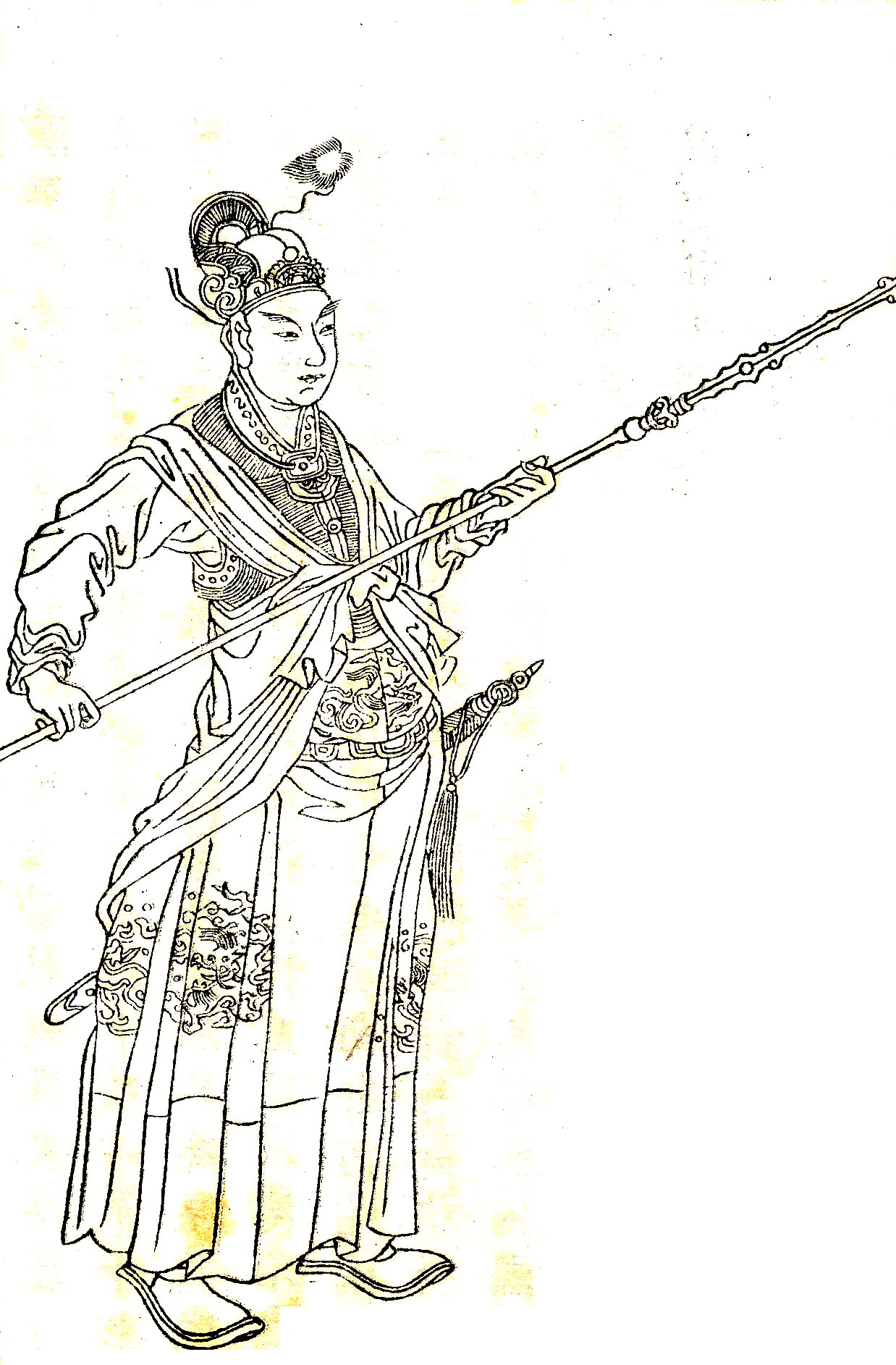
Diagram 9 This image of Han Xin was carried on the book called "Wan hsiao tang-Chu chuang -Hua chuan(晩笑堂竹荘畫傳) " which was published in 1921(民国十年) (22)
Putting the Han Xin Hypothesis in perspective
Han Xin’s credibility as the inventor of Xiangqi has been criticized by other Western historians, scholars, et cetera. In this section, the author will discuss the criticisms he found thus far and add some thoughts of his own.
Some of Peter Banaschak’s criticism
In particular, Mr. Peter Banaschak has written an essay criticizing David Li’s work which has been mentioned earlier in the section of Liubo. (23)
In his website, Mr. Banaschak blasted David Li for various inadequacies, especially in terms of how to write a proper paper. There were also criticisms for the lack of use of established translated sources by renowned sinologists.
Then there is the criticism of Pan Zhenguan’s source.
As Banaschak put it:
But again, there is a But: the very core of David H. Li's findings is the declaration that the Western Han (206 BC-23 AD) general Han Xin is the inventor of Chess. This statement is based on virtually nothing. Of course there is the account that Eyles Irwin gives, but subsequent research until now has failed to identify from which source Irwin's informer, Pan Zhenguan, has drawn his information. And exactly this is the crucial point: Although the shred of information provided by Pan Zhenguan through Irwin is as good a starting point as anything else, it is simply not enough. It would have been a great find indeed if Prof. Li could tell us from which earlier source the account given by Irwin comes. Lacking this vital piece of information we cannot follow the tracks of the basic text back through time to decide on its credibility. But as it is, the story Li tells is nothing more: a good story, well told, a story plausible enough in itself, but it is simply not backed by any evidence. He has devised an ingenious explanation for the nearly eight centuries of complete silence from Han Xin's death to the seventh century. According to Prof. Li that is because Han Xin incurred the displeasure of the ruling elites after he was put to death. Li tells us it became too dangerous to openly play the game. But of course this does not account for the inclusion of Han's biography in the biography sections of the Shiji (the first and the model of the great dynastic histories) and the Hanshu. (23)
The author has similar sentiments. Despite all the praise heaped on Pan Zhenguan’s work, there was little discussion on the ‘Concum.’ Irwin stated clearly that the source was the ‘Concum.’ The author feels that Li did an excellent job of introducing Han Xin. The life of Han Xin, the Battle of Jing Xing, and Han Xin’s eventual demise was carefully documented.
BUT, common sense would dictate that the identity of the ‘Concum’ and its contents should have been examined in detail to prove the validity of Pan Zhenguan’s research. It would be especially so that Holt, who the professor also discussed in a favorable light, had identified the book. And if Holt’s claim was true, the alleged book or ‘Concum’ is still extant. The author would love to know what the professor felt about Pan Zhenguan’s notes NOT being found in the still extant versions of the Gang Mu, aka ‘Concum.’ Did the professor find another version of the ‘Concum’ in the libraries where he had done his research, one that contained Pan Zhenguan’s claims?
In the author’s humble opinion, David Li’s research was extremely impressive and formidable. Yet, neglecting the ‘Concum’ and not fact-checking the root of Pan Zhenguan’s claims would seem to be a major blot in his work.
To put things into perspective about the Han Xin hypothesis, the author has listed several angles to put things in perspective.
No Readily Identifiable Source
As a continuation of the point mentioned above, Zhou Jiasen’s claim, Pan Zhenguan’s research, and even the passage in Fathomless Ocean DO NOT HAVE A READILY IDENTIFIABLE SOURCE. There was simply no credible citation to provide at least some form of validity. They do suggest that there was a source for their claims. In fact, there might even be more than one source.
The author believes and agrees that the ‘Concum’ should be the Gang Mu. However, he has reservations about the scribing of the contents.
There might be a passage that later scribes failed to copy which mentioned Han Xin as the inventor of Xiangqi. This is because Zhou Jiasen and Pan Zhenguan’s hypotheses, although similar, still had minor discrepancies. It would suggest that they might have looked at the same source and had different interpretations. Or, there might have been more than one source mentioning the Han Xin hypothesis in the ancient texts.
There are thousands of ancient scrolls of writings. Although the author has never come across similar passages claiming Han Xin to be the inventor, he cannot rule out the possibility. After all, the history of China is full of instances of important texts being lost through natural calamities, fires at libraries, under the decrees of the rulers, or simply through the sands of time. Hence, the hypothesis could be true if later scribes failed to include the passage that Han Xin invented Xiangqi.
The idea that One man invented Xiangqi?
One hotly debated issue about the origins of International Chess is whether one person invented the game or it was the collaborative efforts of several people. With regards to the origin of Xiangqi, this idea is not alien.
For example, other than Han Xin, King Wu of Zhou has also been implicated as the sole inventor of Xiangqi.
An opposing hypothesis would be the hypothesis that Emperor Wu of the Northern Zhou invented Xiangqi. He had to enlist the help of hundreds of officials before finishing his invention, which is not likely to be the Xiangqi that we know.
The concept of one man inventing a very complex game has also been touted in the West. The most prominent would be Sir William Jones, who had also advocated such an idea for International chess.
“The beautiful simplicity and extreme perfection of the game, as it is commonly played in Europe and Asia, convince me that it was invented by one effort of some great genius, not completed by gradual improvements, but formed, to use the phrase of Italian critics, by the first intention; yet of this simple game, so exquisitely contrived, and so certainly invented in India, I cannot find any account in the classical writings of the Brahmans." (24)
And of course, there were criticisms of such a concept by others.
In 1859, Willard Fiske wrote in The Book of the First American Chess Congress:
“Sir William Jones has given it as his opinion that the beautiful simplicity and extreme perfection of the game, prove it to have been the invention of a single mind. Later writers have rejected this hypothesis. In short, it seems incredible that any one man, by his own unaided brain, should have produced in its present symmetrical completeness, a thing at once so complex in detail, yet so simple as a whole? …
I believe that it sprang from rude beginnings, and gradually threw off one imperfection after another, or added one beauty after another, until it ripened into the old Chaturanga, which is essentially our modern game.” (25 pp. 16-17)
The concept of one genius inventing a game as complex as Xiangqi or International Chess remains debatable. The author feels that it is highly doubtful. As with other aspects of the Han Xin hypothesis, more concrete evidence is required to validate or renounce this hypothesis.
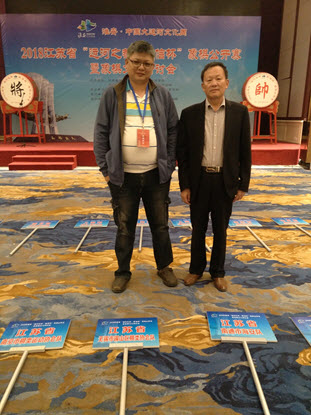
Diagram 10 Author (left) with his good friend Mr. Lin Zhenquan during his travels to Huaiyin, Jiangsu, 2018
Contradicting other established sources
There are many hypotheses regarding the origins of Xiangqi. The Han Xin hypothesis, if true, would be a grim reminder that the other hypotheses were wrong!
A piece of indirect evidence to contradict the Han Xin hypothesis is the LACK of mention in other established encyclopedias or books on the topic.
The current consensus is that Xiangqi was invented no later than the Southern Song Dynasty, which would be over one thousand years since Han Xin’s time. The current prototypes of Xiangqi, like Liubo, Sai, et cetera, do not seem to have any links to Han Xin. Professor David Li did try to use Liubo, military strategy, et cetera to concoct his hypothesis of how Han Xin invented Xiangqi. However, the author has his reservations about this theory.
Lack of archeological evidence
There has not been any archeological evidence to support Han Xin’s hypothesis either. It can be argued that unless the Xiangqi sets of his time were made of durable materials like ivory and well preserved, any Xiangqi sets made of wood or paper would have decayed into oblivion.
Nonetheless, the issue of the lack of archeological evidence has always been one shortcoming in various hypotheses regarding the origins of Xiangqi or other ancient prototypes.
Even if Han Xin invented ‘Xiangqi,’ is ‘it’ the Xiangqi we know?
We suppose that Han Xin did indeed invent ‘Xiangqi.’ But is his ‘invention’ the Xiangqi that we know? If it was, why was there no other mention of a similar game in the ancient texts? Several encyclopedias are still extant whereby both Chinese and Western scholars have used as references. However, to the author’s knowledge, there was no mention of any game, save for the Game of Leaves, as mentioned earlier. But the Game of Leaves was suggested to be a gambling game. It was not anything similar to Xiangqi as we know it.
The identity of Han Xin’s ‘invention,’ if true, would raise many doubts on its own.
The Han Xin Cup
People in China hail Han Xin to be one of the greatest heroes in the history of China. His impact on the culture of China is undeniable and unreplaceable.
Many people believe that he invented Xiangqi, especially the local authorities at Huaiyin County in Jiangsu Province, where Han Xin was born and grew up. Xiangqi is a local pastime at Huaiyin, and the author was impressed during his travels in 2018.
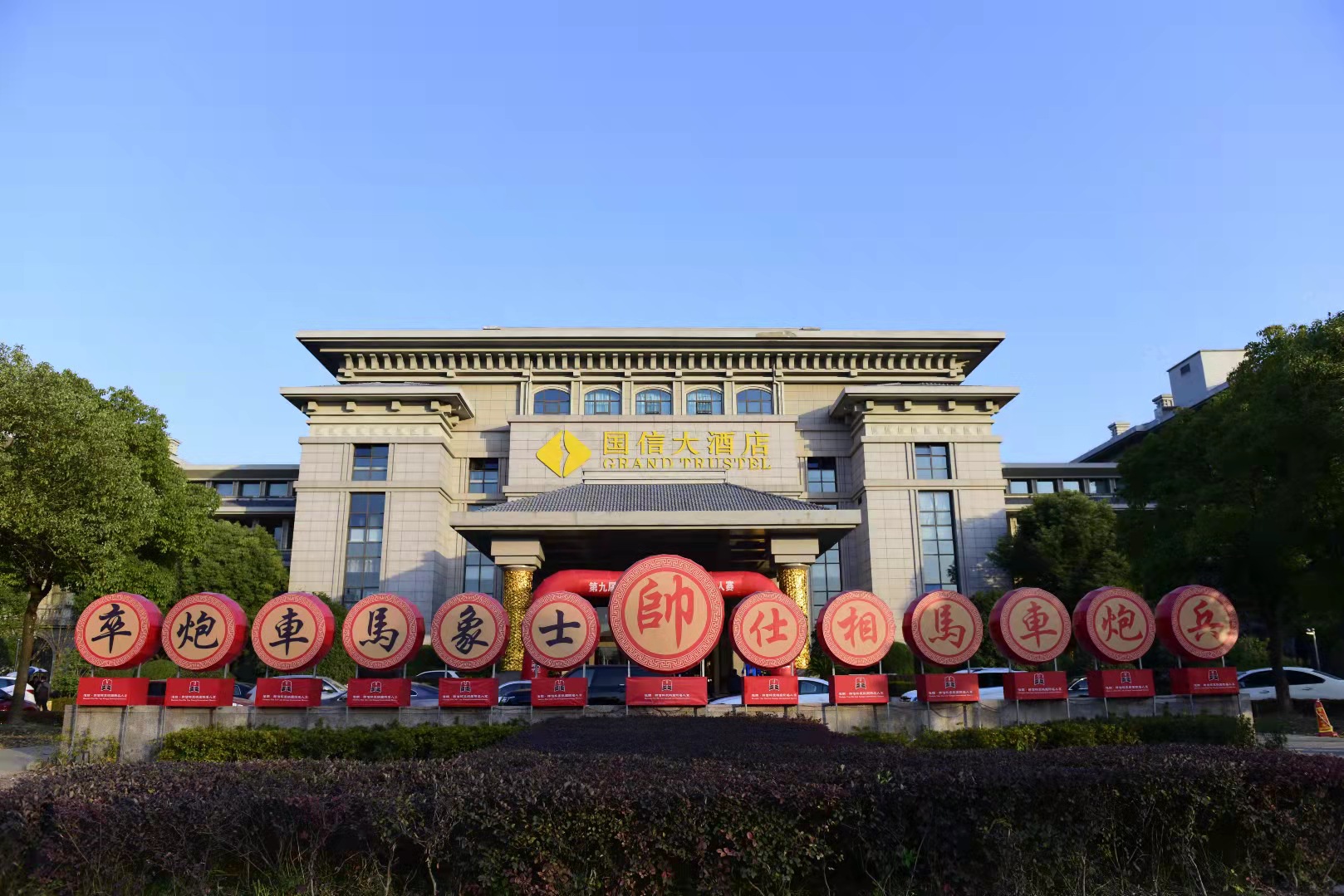
Diagram 11 Guo Xin Da Fan Dian 国信大饭店 at Huaiyin, Jiangsu. Some of the associated competition and cultural exchanges were held here. The author was invited to present his findings on early Western literature on Xiangqi.
The local authorities have also been one of the fiercest promoters of Xiangqi. They have held the Han Xin Cup, one of the premier international Xiangqi tournaments in the past decade, with one of the highest prize monies of its time.
The Han Xin Cup was also significant as it was one of the rare events held OUTSIDE of China for several of the events.
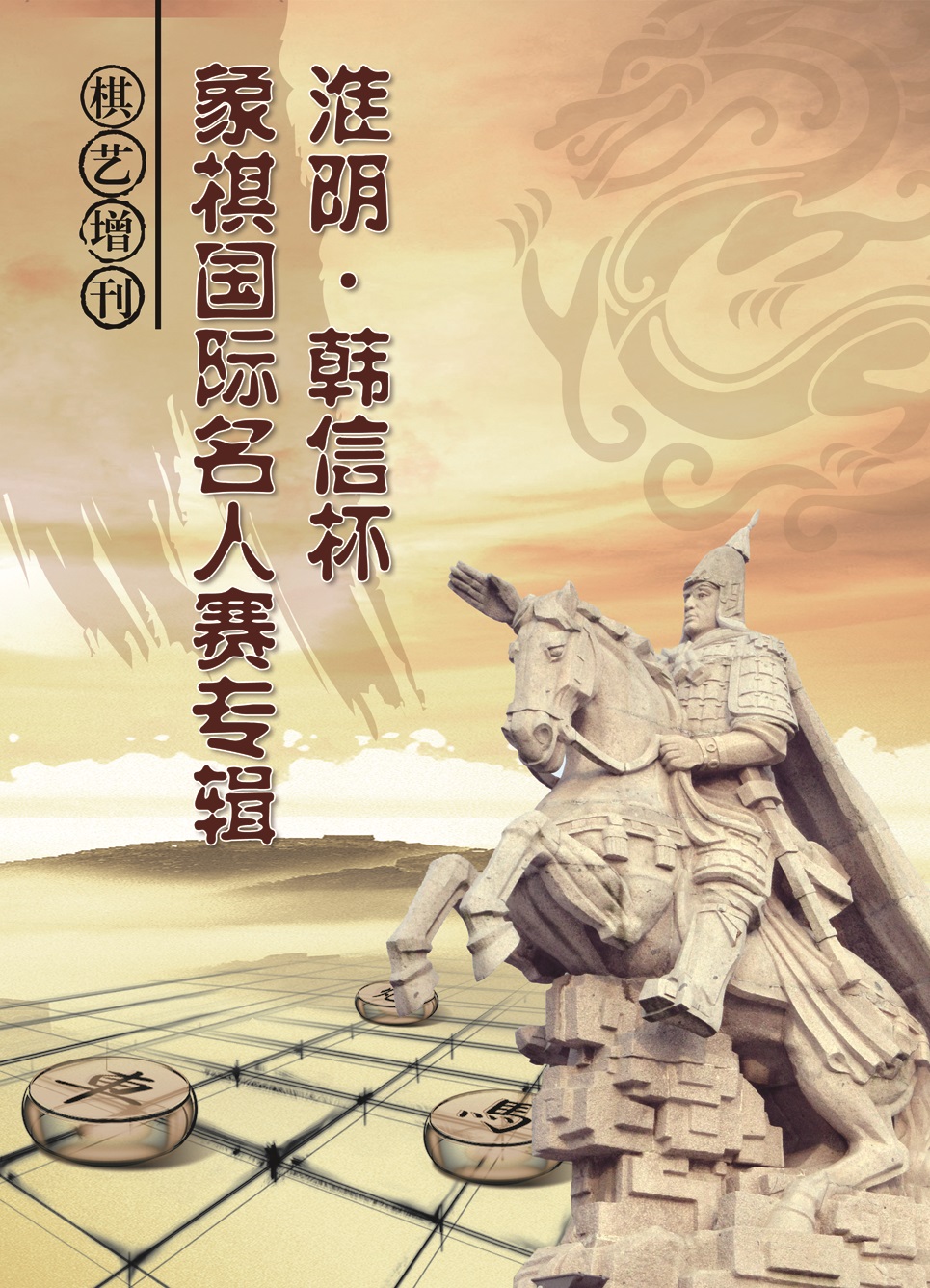
Diagram 12 Magazine Cover of Han Xin Cup, a special edition from the periodical Qiyi
Afterthoughts:
The hypothesis that Han Xin invented Xiangqi has been one of the most debatable issues regarding the origins of Xiangqi. It has also become prominent internationally, much to the efforts of David Li and his book, The Genealogy of Chess.
However, the hypothesis itself has many inconsistencies and debatable areas. The fact that the original source of the citations by Zhou Jiasen, Pan Zhenguan, et cetera cannot be found would further discredit its validity. But neither can it be ruled out.
Over the years of reading about Han Xin and related articles on Xiangqi, the author feels that the hypothesis is not likely. However, it cannot be counted entirely out as there is still the very remote possibility that such a text that Han Xin invented Xiangqi was indeed present in ancient times.
Instead, the author prefers to view Han Xin as an important part of the culture of Xiangqi. Many endgame compositions in the ancient manuals were inspired by Han Xin’s life and his feats. There is an abundance of endgame titles using titles that refer to Han Xin. If we were to take the Elegant Pastime Manual or the Dreams of Divine Positions ancient manuals as reference, these endgame compositions were created at least one thousand two hundred years after his death. It would be a testament to his legacy.
In Chinese Taipei, there was a short episode of a story about Xiangqi. While it was not set during Han Xin’s time, it used Han Xin as the story's backbone. It is quite a nice story, and the entire video is in Chinese. The show’s title was 大龙峒棋王 ( dà long dòng qíwáng), which is translated as the Xiangqi King from Da Long Dong. The author was unable to embed the video. It can be assessed at the following link. There is short mention of Han Xin right at the beginning of the video.
This video is but a testament to Han Xin’s influence in Xiangqi.
References
1. contributors, Wikipedia. Han Xin. Wikipedia, The Free Encyclopedia. [Online] Page Version ID: 1027791066, Sep 16, 2021. [Cited: Sep 19, 2021.] https://en.wikipedia.org/w/index.php?title=Han_Xin&oldid=1044679374.
2. 维基百科编者. 韩信. 维基百科. [Online] 条目版本编号:67566858, Sep 6, 2021. [Cited: Sep 19, 2021.] https://zh.wikipedia.org/w/index.php?title=%E9%9F%A9%E4%BF%A1&oldid=67566858.
3. (西汉)司马迁. 先秦兩漢 -> 史書 -> 史記 -> 列傳 -> 淮陰侯列傳. 諸子百家. [Online] [Cited: Sep 19, 2021.] https://ctext.org/shiji/huai-yin-hou-lie-zhuan/zh.
4. —. 先秦兩漢 -> 史書 -> 史記 -> 本紀 -> 高祖本紀. 諸子百家. [Online] [Cited: Jul 12, 2021.] https://ctext.org/shiji/gao-zu-ben-ji/zh.
5. contributors, Wikimedia Commons. File:Kuniyoshi Utagawa, Suikoden Triptych The Fishermen.jpg. Wikimedia Commons, the free media repository. [Online] 548063474, Mar 30, 2021. [Cited: Oct 3, 2021.] https://commons.wikimedia.org/w/index.php?title=File:Kuniyoshi_Utagawa,_Suikoden_Triptych_The_Fishermen.jpg&oldid=548063474.
6. 张, 如安. 中国象棋史. 北京 : 团结出版社, 1998. 7-80130-170-6.
7. 周, 家森. 象棋与棋话 第三版. s.l. : 世界书局印行, 1947, 民国36年. No ISBN.
8. (南宋)朱熹. 御批資治通鑑綱目(欽定四庫全書). 诸子百家. [Online] [Cited: Sep 20, 2021.] https://ctext.org/wiki.pl?if=gb&chapter=219959.
9. (东汉)班固. 先秦兩漢 -> 史書 -> 漢書 -> 紀 -> 高帝紀. 诸子百家. [Online] [Cited: Sep 23, 2021.] https://ctext.org/han-shu/gao-di-ji/zh.
10. contributors, Wikipedia. Battle of Jingxing. Wikipedia, The Free Encyclopedia. [Online] 1044918200, Sep 17, 2021. [Cited: Sep 19, 2021.] https://en.wikipedia.org/w/index.php?title=Battle_of_Jingxing&oldid=1044918200.
11. Sima, Qian. Records of the Grand Historian Han Dynasty I. [trans.] Burton Watson. Revised 1993. s.l. : Columbia University Press, 1961. 0-231-08164-2.
12. Himly, K. The Chinese Game of Chess as Compared with that Practised by Western Nations. Journal of the North-China Branch of the Royal Asiatic Society. 1869 & 1870, New Series No. VI, pp. 105-122.
13. 陈, 贤玲. 象棋方程 . [ed.] 跃中 李. 北京 : 中国社会出版社, 2009.2. 978-7-5087-2456-0.
14. 张, 展. 象棋人生. 北京 : 经济管理出版社, 2012. 9787509621394 .
15. Watson, Burton, [trans.]. Records of the Historian Chapters from the Shih Chi of Ssu-ma Ch'ien. New York and London : Columbia University Press, 1969. SBN 231-03321-4.
16. (东汉)班固. 先秦兩漢 -> 史書 -> 漢書 -> 志 -> 藝文志. 諸子百家. [Online] [Cited: Sep 20, 2021.] https://ctext.org/han-shu/yi-wen-zhi/zh.
17. Needham, Joseph, Wang, Ling and Robinson, Kenneth Girdwood. Science and Civilization in China, Volume IV:1. 6th Printing, 2004. London : Cambridge University Press, 2004. 0521058023.
18. Holt, H.F.W. Notes on the Chinese Game of Chess. Royal Asiatic Society of Great Britain and Ireland. 17, Jul 1885, Vol. 3, pp. 352-365.
19. contributors, Wikipedia. Twenty-Four Histories. Wikipedia, The Free Encyclopedia. [Online] 1042241781, Sep 3, 2021. [Cited: Sep 22, 2021.] https://en.wikipedia.org/w/index.php?title=Twenty-Four_Histories&oldid=1042241781.
20. —. David H. Li. Wikipedia, The Free Encyclopedia. [Online] 987115065, Nov 5, 2020. [Cited: Sep 23, 2021.] https://en.wikipedia.org/w/index.php?title=David_H._Li&oldid=987115065.
21. Li, David H. The Genealogy of Chess. s.l. : Premier publishing, 1998. 0-9637852-2-2.
22. contributors, Wikimedia Commons. File:Hán Xìn.jpg. Wikimedia Commons, the free media repository. [Online] 147201724, Han 29, 2015. [Cited: Oct 3, 2021.] https://commons.wikimedia.org/w/index.php?title=File:H%C3%A1n_X%C3%ACn.jpg&oldid=147201724.
23. Banaschak, Peter. A story well told is not necessarily true - being a critical assessment of David H. Li's "The Genealogy of Chess". http://www.banaschak.net/. [Online] None given. [Cited: Nov 1, 2019.] http://www.banaschak.net/schach/ligenealogyofchess.htm.
24. Jones, William. The Indian Game of Chess. Asiatick Researches. 1883 reprint.
25. Fiske, Daniel Willard. The Book of the First American Chess Congress. New York : Rudd and Carleton, 1859.
26. 李, 松福. 象棋史话. 北京 : 新华书店北京发行所, 1981. 7015.1939.
27. contributors, Wikipedia. Chu–Han Contention. Wikipedia, The Free Encyclopedia. [Online] Page Version ID: 1027946672, June 10, 2021. [Cited: July 6th, 2021.] https://en.wikipedia.org/w/index.php?title=Chu%E2%80%93Han_Contention&oldid=1027946672.
28. Gernet, Jacques. A History of Chinese Civilization Second Edition. [trans.] J.R. Foster and Charles Hartman. s.l. : Press Syndicate of the University of Cambridge, 1996. 0-521-49712-4.
29. Irwin, Eyles. An Account of the Game of Chess, as Played by the Chinese, in a Letter from Eyles Irwin, Esq; to the Right Honourable the Earl of Charelmont, President of the Royal Irish Academy. The Transactions of the Royal Irish Academy. 1793, Vol. 5, pp. 53-63.
